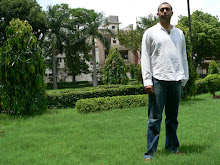"The Lincoln legend has come to have a hold on the American imagination that defies comparison with anything else in political mythology." - Richard Hofstader, The American Political Tradition: And the Men Who Made It.
Abraham Lincoln, the 16th US president, is a more mythical than historical figure for most Americans. True he towers over virtually all others. Days after celebrations honoring his bicentennial, a survey of 65 historians ranked Lincoln the greatest ever. George W. Bush came 36th out of 42 overall. So on President's day or Washington’s Birthday, as the federal holiday is officially known in the US a chance to ponder the soft power of Lincoln.
Over at the Huffington Post Mario Cuomo, former governor of New York, sees the success or failure of President Obama's presidency as having even "greater impact globally than did the Lincoln presidency". He is at least honest to say that Americans should not be
"so awestruck by the towering figure that history and legend have made of him".
This is sound advice. Abe is becoming a totemic figure for left-of-centre Indians looking post-Obama to validate their rediscovery of the United States as a country to be admired. Abe saved the US by defeating the southern secessionist states. He sought to wipe out slavery. Here's the Hindu editorial on the
"Moral giant of modernity" .
Sorting the wheat from the chaff is supposed to be what newspapers do. True the Hindu does say that Lincoln " was a highly political man, ambitious, and even calculating". The paper even remembers his letter to Horace Greeley, Editor of the New York Tribune: “My paramount object in this struggle is to save the Union, and is not either to save or to destroy slavery.”
A better take comes from Hofstader. "To become President, Lincoln had had to talk more radically on occasion than he actually felt; to be an effective President he was compelled to act more conservatively than he wanted."
Hofstader's analysis was that Lincoln was a complex, flawed man and politician. The academic, writing in the forties when race was a much more visceral blot on US claims of equality of opportunity, does not fall for the Lincoln myth. He points out that that Lincoln thought democracy, in nineteenth century America, was not "broad enough to transcend colour lines". A creature of his times, Abe Lincoln's story of a boy born in a log cabin who became president still stirs. He was no saint, just another politician with some of the right ideas, some of the time. The same will be true, no doubt, for Obama.


